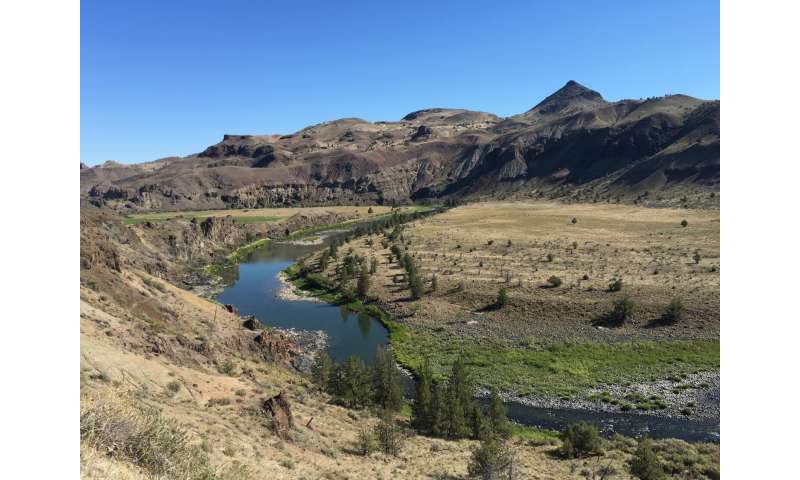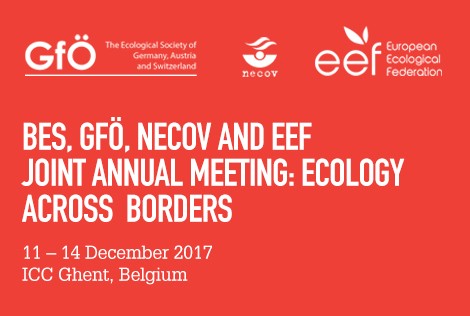Philosophy of Biology
 The growth of philosophical interest in biology over the past thirty years reflects the increasing prominence of the biological sciences in the same period. There is now an extensive literature on many different biological topics, and it would be impossible to summarise this body of work in this single entry. Instead, this entry sets out to explain what philosophy of biology is. Why does biology matter to philosophy and vice versa? A list of the entries in the encyclopedia which address specific topics in the philosophy of biology is provided at the end of the entry. The growth of philosophical interest in biology over the past thirty years reflects the increasing prominence of the biological sciences in the same period. There is now an extensive literature on many different biological topics, and it would be impossible to summarise this body of work in this single entry. Instead, this entry sets out to explain what philosophy of biology is. Why does biology matter to philosophy and vice versa? A list of the entries in the encyclopedia which address specific topics in the philosophy of biology is provided at the end of the entry.
Three different kinds of philosophical enquiry fall under the general heading of philosophy of biology. First, general theses in the philosophy of science are addressed in the context of biology. Second, conceptual puzzles within biology itself are subjected to philosophical analysis. Third, appeals to biology are made in discussions of traditional philosophical questions. The first two kinds of philosophical work are typically conducted in the context of a detailed knowledge of actual biology, the third less so.
Philosophy of biology can also be subdivided by the particular areas of biological theory with which it is concerned. Biology is a diverse set of disciplines, ranging from historical sciences such as paleontology to engineering sciences such as biotechnology. Different philosophical issues occur in each field. The latter part of the entry discusses how philosophers have approached some of the main disciplines within biology.
- 1. Pre-history of Philosophy of Biology
- 2. Three Types of Philosophy of Biology
- 3. Philosophy of Evolutionary Biology
- 4. Philosophy of Systematic Biology
- 5. Philosophy of Molecular Biology
- 6. Philosophy of Developmental Biology
- 7. Philosophy of Ecology and Conservation Biology
- 8. Methodology in Philosophy of Biology
- Bibliography
- Academic Tools
- Other Internet Resources
- Related Entries
Read more...
What is the Paris Agreement?
At COP 21 in Paris, on 12 December 2015, Parties to the UNFCCC reached a landmark agreement to combat climate change and to accelerate and intensify the actions and investments needed for a sustainable low carbon future. The Paris Agreement builds upon the Convention and – for the first time – brings all nations into a common cause to undertake take ambitious efforts to combat climate change and adapt to its effects, with enhanced support to assist developing countries to do so. As such, it charts a new course in the global climate effort.
Read more...
Bridging communities and ecosystems: Inclusion as an ecological imperative
Don’t miss your chance to organize an invited paper session for #ESA2019! Proposals for symposia and organized oral sessions are due Monday September 24th at 5:00 pm Eastern (2:00 pm Pacific).Annual Meeting Website
The community of people engaged in the science of ecology is transforming, bringing important new perspectives into the field. Inclusive approaches to ecology can build bridges between theory and practice, connect those working in disparate landscapes and subdisciplines, and incorporate diverse perspectives. Such approaches support ecologists and the ecological community as a whole as they articulate socio-environmental connections, address widespread ecosystem change, take advantage of technological advancements that provide unprecedented access to data and new analytical techniques, and engage in interdisciplinary collaborations.

https://esa.org/louisville/
Can A Country Achieve 100% Use of Renewable Energy?
If you think 100% renewable energy will never happen, think again. Several countries have adopted ambitious plan to obtain their power from renewable energy. These countries are not only accelerating RE installations but are also integrating RE into their existing infrastructure to reach a 100% RE mix.
Several countries are pioneers in renewable energy. Iceland gets 85% of the country’s electricity from earth’s heat. The country’s electricity supply is 100% renewable and depends on geothermal and hydropower. Norway is around 98% renewable and uses hydroelectric, geothermal and wind, to achieve its goal. Portugal rely on hydroelectricity for 38% to 58% electricity, wind power contributes one fifth, biomass 5% and solar around 1%.Scotland has a mandate to become 100% renewable by 2020.Paraguay uses hydropower ,to provides 90% of its electricity and 19% of Brazil’s by using Itaipu dam. The dam took 30 years to build and costs $20 billion. It now helps in displacing 67.5 million tonnes of CO2 a year. Denmark uses 30% wind and 15% biomass for its energy needs. Germany already uses 98% renewable energy.
In a recent study known as The Solutions Project, Stanford professor Mark Jacobson, has concluded that U.S can meet its 100% of energy demand through renewable by 2050 through concentrated solar power, utility-scale and rooftop PV, onshore and offshore wind, tidal and conventional hydropower and geothermal wave. Study stays to achieve its goal, conscious efforts should be made to obtain all new electricity generation by sunlight, water and wind by 2020 and U.S should replace 80% of its existing energy to renewable sources by 2030 to reach 100% renewable by 2050.
The resource mix of renewable would be different state by state, in California, Texas and Massachusetts it would be as follows-
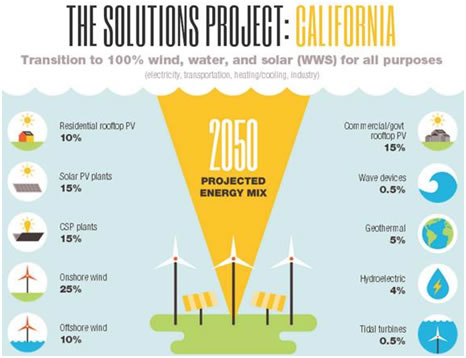
Read more...
Environmental Problems
Our environment is constantly changing. There is no denying that. However, as our environment changes, so does the need to become increasingly aware of the problems that surround it. With a massive influx of natural disasters, warming and cooling periods, different types of weather patterns and much more, people need to be aware of what types of environmental problems our planet is facing.
Global warming has become an undisputed fact about our current livelihoods; our planet is warming up and we are definitely part of the problem. However, this isn’t the only environmental problem that we should be concerned about. All across the world, people are facing a wealth of new and challenging environmental problems every day. Some of them are small and only affect a few ecosystems, but others are drastically changing the landscape of what we already know.
Our planet is poised at the brink of a severe environmental crisis. Current environmental problems make us vulnerable to disasters and tragedies, now and in the future. We are in a state of planetary emergency, with environmental problems piling up high around us. Unless we address the various issues prudently and seriously we are surely doomed for disaster. Current environmental problems require urgent attention.
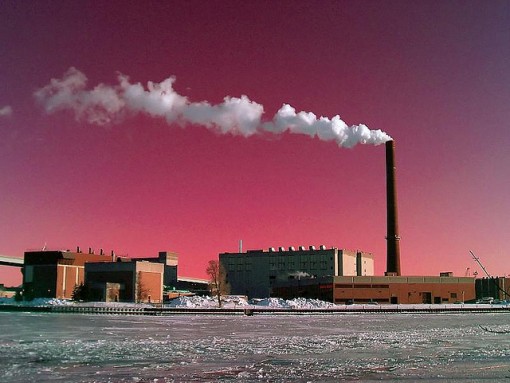
15 Major Current Environmental Problems
1. Pollution: Pollution of air, water and soil require millions of years to recoup. Industry and motor vehicle exhaust are the number one pollutants. Heavy metals, nitrates and plastic are toxins responsible for pollution. While water pollution is caused by oil spill, acid rain, urban runoff; air pollution is caused by various gases and toxins released by industries and factories and combustion of fossil fuels; soil pollution is majorly caused by industrial waste that deprives soil from essential nutrients.
2. Global Warming: Climate changes like global warming is the result of human practices like emission of Greenhouse gases. Global warming leads to rising temperatures of the oceans and the earth’ surface causing melting of polar ice caps, rise in sea levels and also unnatural patterns of precipitation such as flash floods, excessive snow or desertification.
3. Overpopulation: The population of the planet is reaching unsustainable levels as it faces shortage of resources like water, fuel and food. Population explosion in less developed and developing countries is straining the already scarce resources. Intensive agriculture practiced to produce food damages the environment through use of chemical fertilizer, pesticides and insecticides. Overpopulation is one of the crucial current environmental problem.
Read more...
ENR-CSO Network Thematic Working Group meetings to discuss thematic area issues and content for inclusion into the ENR-CSOs position paper ahead of the water and environment Joint Sector Review 2018

The Annual Joint Sector Review for the Water and Environment sector for FY2017/18 will be conducted by stakeholders in September 2018 and as always, the Ministry is expected to prepare and publish an annual Sector Performance Report (SPR) for the Financial Year (FY) 2017/2018. As it has always been in the previous years, members of the ENR-CSO Network will actively participate in this year’s JSR process through documentation of their contributions to the ENR sub-sector and in addition conducting an assessment of the government’s performance against the set undertakings and commitments for the previous financial year 2017/2018.
Besides, increasing civil society visibility, participation in this process will offer an opportunity for Civil Society Organizations in the ENR sub-sector to exhibit their contributions to the sector during the 2017/2018 financial year and to engage in influencing priority setting for the sector in this new financial year 2018/2019. This is done through a CSOs position paper that highlights issues in the sector as well as providing targeted recommendations.
It’s in that context therefore that, Environmental Alert the Secretariat for the ENR-CSO network is organising a half day meetings for members of Thematic Working Groups to meet, process issues and content pertaining their themes for inclusion into the ENR-CSOs position paper. The meetings are scheduled for 11th – 12th September 2018.
http://envalert.org/enr-cso-network-thematic-working-group-meetings-to-discuss-thematic-area-issues-and-content-for-inclusion-into-the-enr-csos-position-paper-ahead-of-the-water-and-environment-joint-sector-review-2018/
Join the matchmaking workshop in Indonesia: Smart and climate-friendly city solutions
Publication date: Monday 10 September 2018
The National Designated Entity (NDE) of Germany, jointly with the NDE Indonesia (National Council on Climate Change of Indonesia), will be hosting a Matchmaking Workshop on Smart and Climate-Friendly City Solutions in Indonesia. The workshop is scheduled to take place from October 31st to November 1st in Jakarta.
The focus sectors for the workshop will be energy efficient buildings and sustainable mobility. In the framework of the workshop, there will be presented a range of German technology solutions, Indonesian companies and decision makers will meet together with potential German partners and provide political support for technology cooperation and transfer. The goal is to support Indonesia in reaching its climate targets by accelerating the transfer of relevant climate technologies.
Companies, associations, research institutions and representatives of relevant technologies who are interested in participating are welcome to contact the NDE of Germany.
Following the Matchmaking Workshop, there is an opportunity for interested participants to join the 16th Asia Pacific Conference of German Business for further networking. Please follow this link to register.

Welcome to IE expo China 2018!
As the Asia's leading environmental show, IE expo China 2018 offers an effective business and networking platform for Chinese and international professionals in the environmental sector and is accompanied by first-class technical-scientific conference program. It is the ideal platform for the professionals in the environmental industry to develop business, exchange idea and do networking.
.
Along with the increased market demand and big support in the environmental industry from the Chinese government, the business potential in the environmental industry in China will be huge. Undoubtedly, IE expo China 2018 will be a “must” for the environmental players to exchange ideas and develop their business in Asia.
.
IE expo China 2017, which was held in the Shanghai New International Expo Centre (SNIEC) from May 4 to 6, once again underlined its position as the number one environmental technology show for China and Asia. Over 55,000 visitors from 60 countries and regions came to Shanghai over the three days. This equals a 28 percent increase compared to the previous year. IE expo China also saw an increase in exhibitors and floor space: 1,637 exhibitors represent a rise of 26 percent and 39 percent more floor space (three additional exhibition halls), 100.000 square meters.
.
IE expo China 2018 will take place from May 3 to 5, 2018 at Shanghai New International Expo Centre, which will cover all the high potential markets in environmental area:
· Water and Sewage Treatment
· Waste Management
· Site Remediation
· Air Pollution Control and Air Purification
.
Don't miss the opportunity to meet the key players and your customers in IE expo China 2018!
.
International Symposium of Ecology 2018 - Kastamonu, TURKEY

Dear Participants
We are honored and pleased to invite you to the "International Symposium of Ecology 2018" which will be held on June 19-23, 2018 in Kastamonu by the Department of Environmental Engineering, Faculty of Engineering and Architecture in Kastamonu University. The symposium language is English.
Ecology Symposiums have been organized with a national participation 7 times so far. The eighth International participation was attempted at Erciyes University. This will be the second in a series of international ecology symposiums in Turkey. We are honored to host the 9th International Symposium on Ecology which will be held at Kastamonu University. The symposium aims to bring together the latest researchers and results of various topics of colleagues such as biology, agriculture, veterinary, engineering, economy and medicine with development of ecology fields in Kastamonu. We aim to strengthen the industry and government cooperation with university and transfer experiences in committees that will present the solution offers, and discuss the current environmental problems with scientific approaches within a sustainable environmental conception. Participants will be able to present oral and poster presentations with the 22 topic title in the symposium. Additionally, we have invited four master-speaker experts in their fields. After the opening ceremony of the Symposium, the rest of the event will be performed in our halls of Engineering and Architecture Faculty.
All paper presented at the symposium will be evaluated for publication in the Kastamonu University Journal of Engineering and Sciences, Hacettepe Journal of Biology and Chemistry and Kastamonu University Journal of Economics and Administrative Sciences. The Symposium Committee is in talks with other scientific journals about the publication of notifications.
Read more...
Climate change challenges the survival of fish across the world
Fish species in many river systems, including the John Day River pictured, will face the challenge of coping with warmer waters in the future. Credit: University of Washington
Climate change will force many amphibians, mammals and birds to move to cooler areas outside their normal ranges, provided they can find space and a clear trajectory among our urban developments and growing cities.
But what are the chances for fish to survive as climate change continues to warm waters around the world?
University of Washington researchers are tackling this question in the first analysis of how vulnerable the world's freshwater and marine fishes are to climate change. Their paper, appearing online Sept. 11 in Nature Climate Change, used physiological data to predict how nearly 3,000 fish species living in oceans and rivers will respond to warming water temperatures in different regions.
"Climate change is happening. We need tools to try to identify areas that are going to be the most at risk and try to develop plans to conserve these areas," said lead author Lise Comte, a postdoctoral researcher in the UW's School of Aquatic and Fishery Sciences. "It's important to look at the organisms themselves as we cannot just assume they will all be equally sensitive to these changes."
Read more...
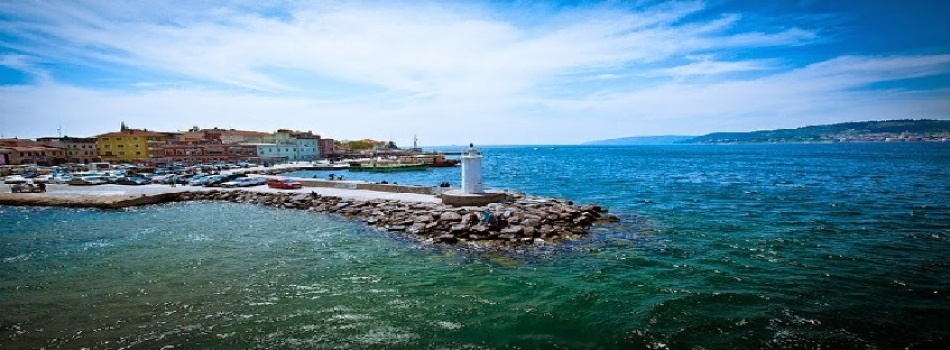
ISEEP-2017 VIII. INTERNATIONAL SYMPOSIUM ON ECOLOGY AND ENVIRONMENTAL PROBLEMS
Dear Colleagues,
On behalf of the Organizing Committee, it is my great pleasure to invite you to participate in the VIII. International Symposium on Ecology and Environmental Problems (ISEEP), organized by the Canakkale Onsekiz Mart University, Faculty of Sciences and Arts, Department of Biology. The conference will be held in Canakkale, Turkey, on 4 – 7 October 2017. It is expected that the Symposium will create an exceptional scientific platform where various ecological problems will be discussed, and possible solutions will be proposed. By this occasion, scientists both from Turkey and abroad are planning to share the results and opinions derived from their studies on various aspects of environmental problems.
Looking forward to seeing you in Canakkale in 2017.
Organizing Committee
Read more...
|
 The growth of philosophical interest in biology over the past thirty years reflects the increasing prominence of the biological sciences in the same period. There is now an extensive literature on many different biological topics, and it would be impossible to summarise this body of work in this single entry. Instead, this entry sets out to explain what philosophy of biology is. Why does biology matter to philosophy and vice versa? A list of the entries in the encyclopedia which address specific topics in the philosophy of biology is provided at the end of the entry.
The growth of philosophical interest in biology over the past thirty years reflects the increasing prominence of the biological sciences in the same period. There is now an extensive literature on many different biological topics, and it would be impossible to summarise this body of work in this single entry. Instead, this entry sets out to explain what philosophy of biology is. Why does biology matter to philosophy and vice versa? A list of the entries in the encyclopedia which address specific topics in the philosophy of biology is provided at the end of the entry.












